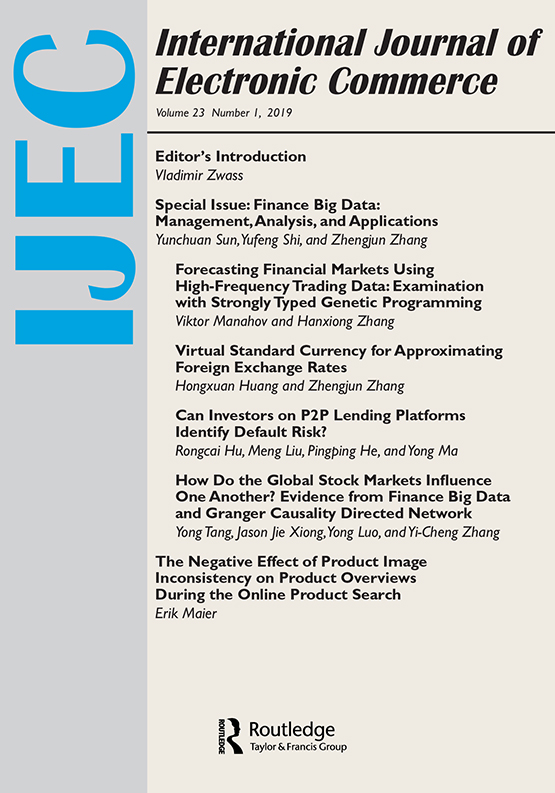开放式创新社区中影响用户创意选择的因素
IF 3.8
3区 管理学
Q2 BUSINESS
International Journal of Electronic Commerce
Pub Date : 2022-10-02
DOI:10.1080/10864415.2022.2123644
引用次数: 5
摘要
摘要:通过开放创新社区广泛收集用户想法,已成为企业的一项重要创新战略。然而,在OIC中从大量用户想法中筛选出有价值的想法对公司来说是一个巨大的挑战。识别影响用户想法选择的相关因素是非常重要的。基于说服理论,我们利用《财富》世界500强中国手机制造商小米主办的MIUI社区中的23165个用户想法,开发了一个综合想法质量特征、想法贡献者特征和想法情感特征的概念模型来解释想法选择的可能性。实证结果表明,这些特征变量对用户思想选择有显著影响。具体来说,创意和标题的长度与创意的选择呈倒U型关系。用户想法中包含的情绪对想法选择有显著的正向影响,而用户注意力对情绪与想法选择之间的关系有负向调节作用。本研究通过提供说服视角来解释OIC中的用户想法选择,为用户共创文献做出了贡献。它还为在OIC中构建合理的规则提供了新的见解,以指导管理者的用户行为。本文章由计算机程序翻译,如有差异,请以英文原文为准。
Factors Influencing User-Idea Selection in Open Innovation Communities
ABSTRACT It is becoming an important innovation strategy for firms to gather the user-idea extensively through open innovation communities (OICs). However, screening out valuable ideas from massive user ideas in an OIC is a huge challenge for the firm. It is very important to identify the relevant factors that influence user-idea selection. Drawing upon persuasion theory, we develop a conceptual model integrating idea quality characteristics, idea contributor characteristics, and idea emotion characteristics to explain the likelihood of idea selection, using 23,165 user ideas in the MIUI Community hosted by Xiaomi, a Chinese mobile phone manufacturer ranked among the Fortune Global 500. The empirical results show that these characteristics variables have significant impacts on user-idea selection. Specifically, the length of the idea and title has an inverted U-shaped relationship with idea selection. The emotions contained in user ideas have a significant positive impact on idea selection, and user attention negatively moderates the relationship between emotion and idea selection. This study contributes to the user co-creation literature by offering a persuasion perspective to explain user-idea selection in OICs. It also offers novel insights for building reasonable rules in OICs to guide user behavior for managers.
求助全文
通过发布文献求助,成功后即可免费获取论文全文。
去求助
来源期刊

International Journal of Electronic Commerce
工程技术-计算机:软件工程
CiteScore
7.20
自引率
16.00%
发文量
18
审稿时长
>12 weeks
期刊介绍:
The International Journal of Electronic Commerce is the leading refereed quarterly devoted to advancing the understanding and practice of electronic commerce. It serves the needs of researchers as well as practitioners and executives involved in electronic commerce. The Journal aims to offer an integrated view of the field by presenting approaches of multiple disciplines.
Electronic commerce is the sharing of business information, maintaining business relationships, and conducting business transactions by digital means over telecommunications networks. The Journal accepts empirical and interpretive submissions that make a significant novel contribution to this field.
 求助内容:
求助内容: 应助结果提醒方式:
应助结果提醒方式:


